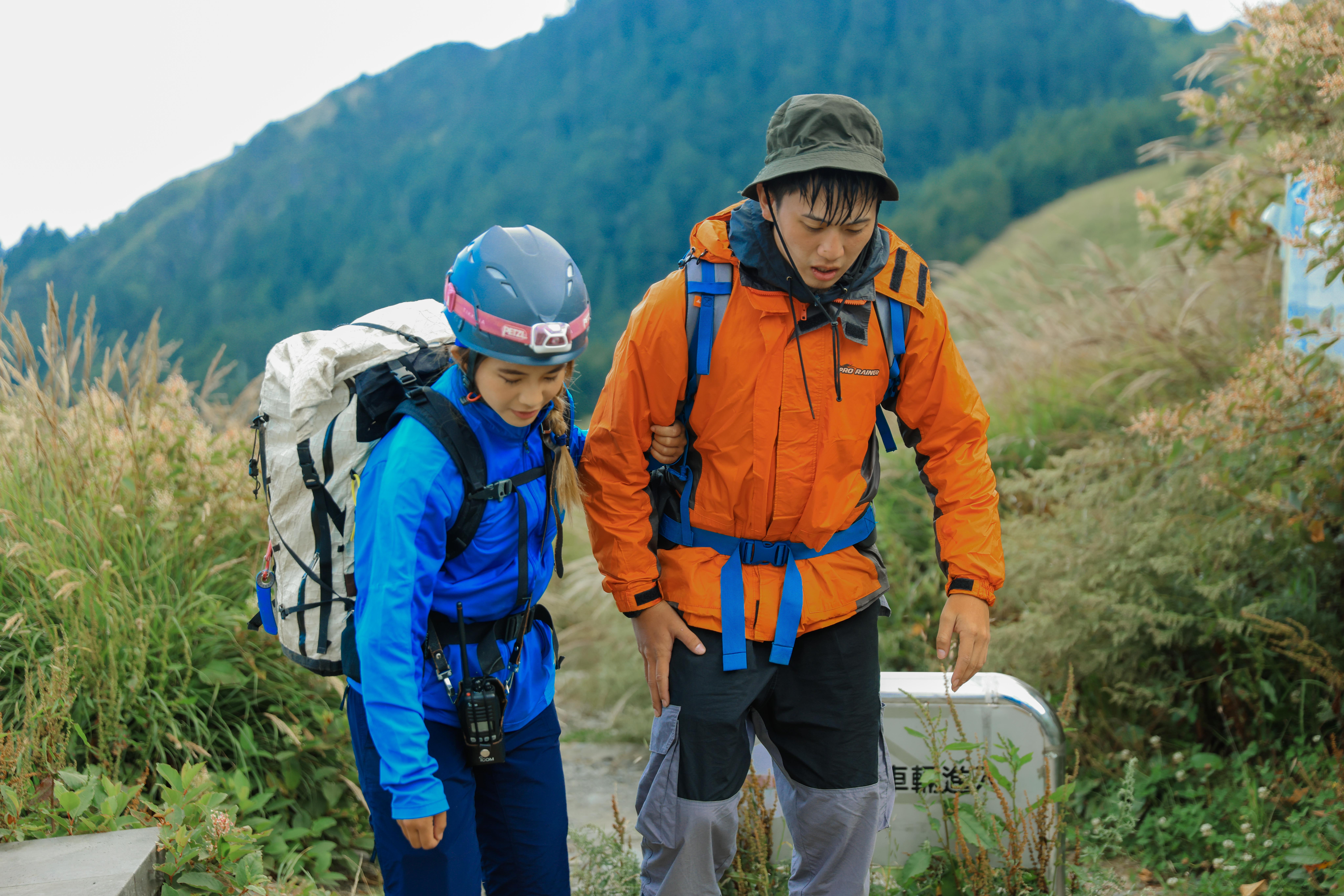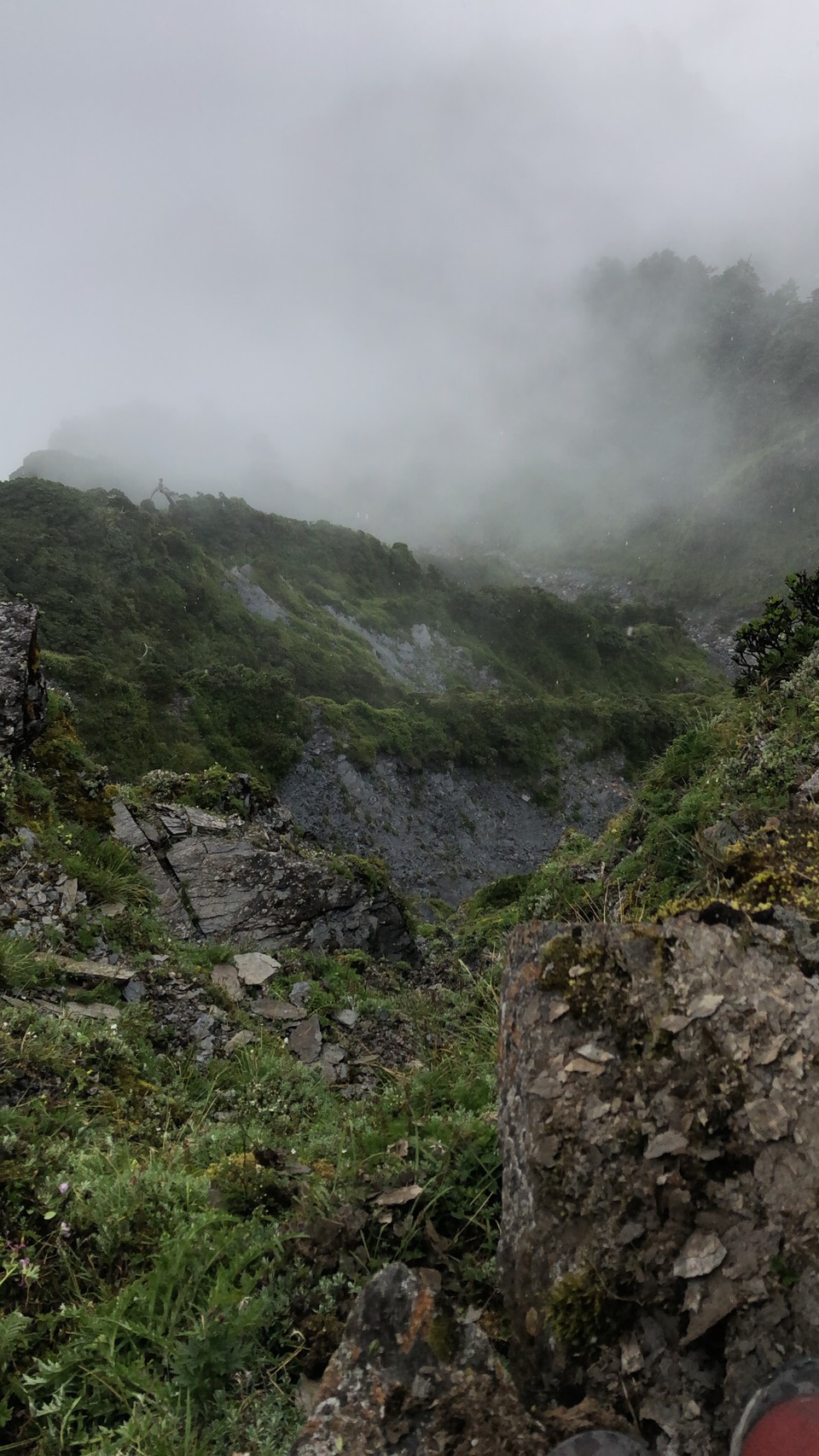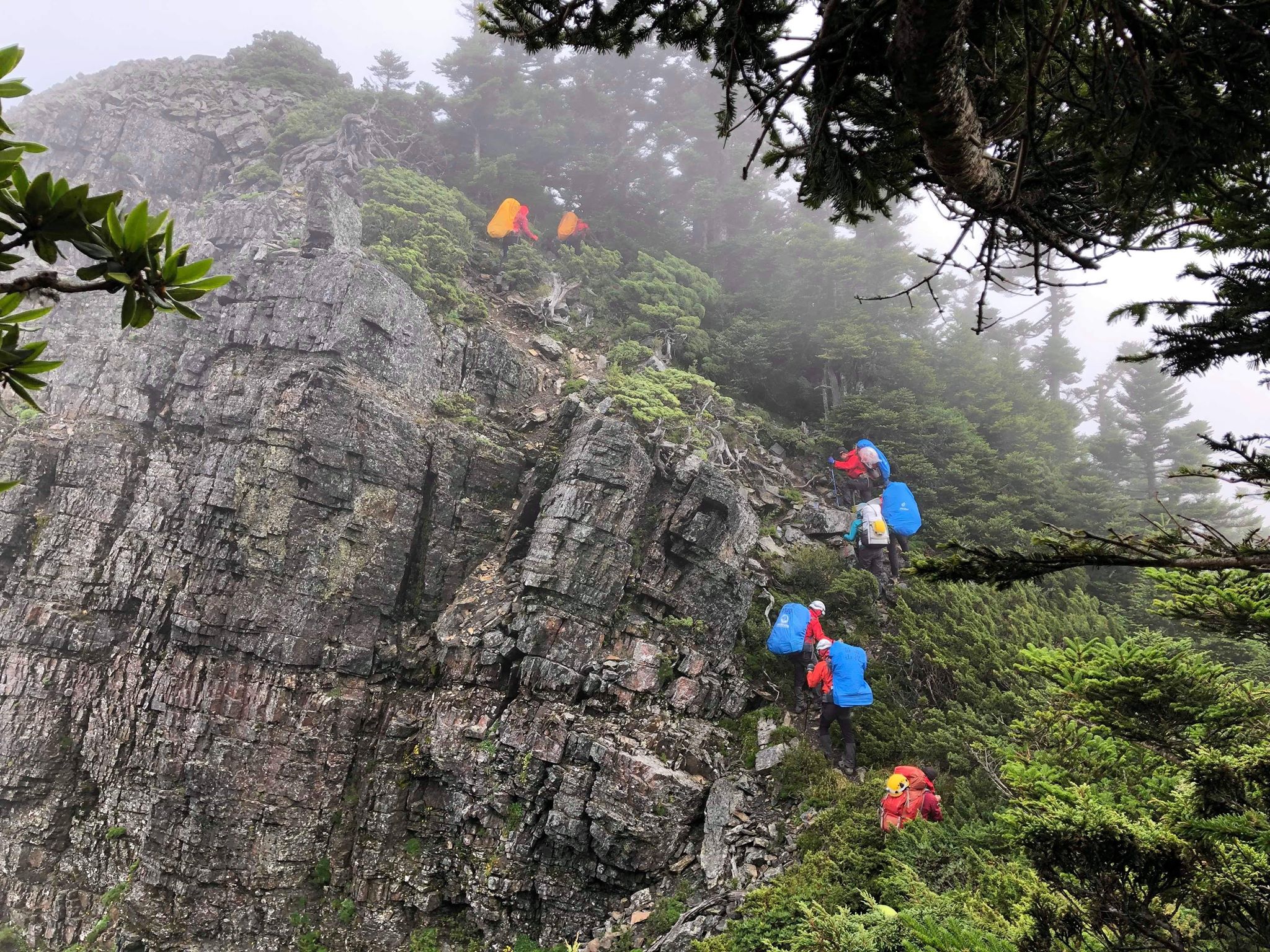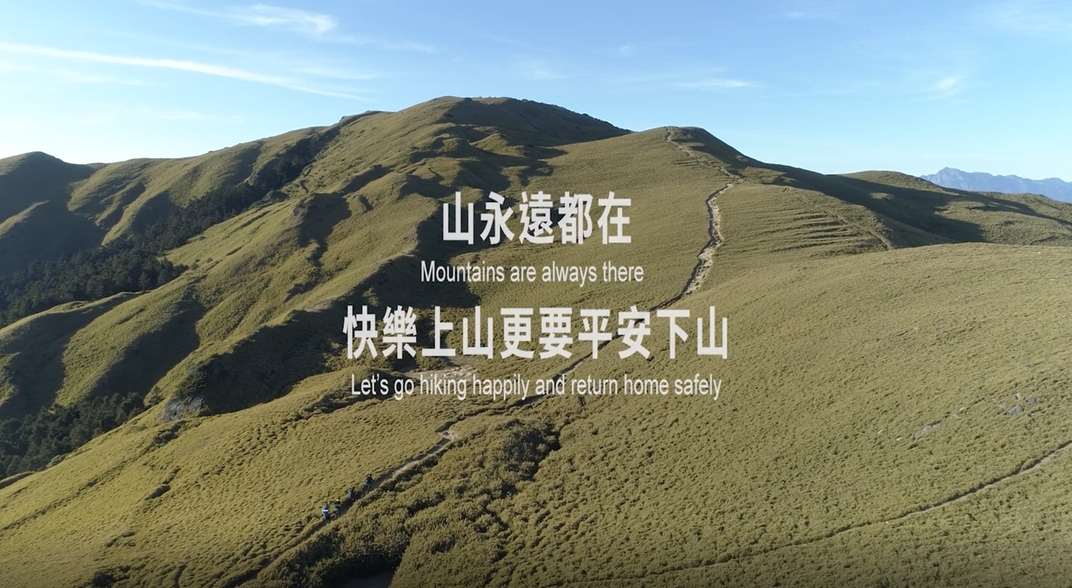Hiking is the top choice for outdoor activities for many people. However, hiking is not something to be done without preparation. The general public needs to clearly understand that hiking involves potential risks. The Construction and Planning Agency, Ministry of the Interior produced the series of educational videos "Mountains are always there-Hike and return home safely"in hopes of raising the awareness of the general public on safe hiking.

Getting lost is a common incident that can occur during hiking activities. However, it also has the highest rate of a successful rescue. Here are 3 tips for self-preservation when one is lost in a hiking trip: What to do for the preparations prior to hiking, during hikes and when one is lost.
Preparations before the trip: Self-training is necessary.
Hiking is a leisure activity with a process. Beginners are recommended to start with small mountains and find trusted partners with abundant hiking experiences to lead the trip. When they get more familiar with the activity, they should then begin practicing carrying weight (approximately 6 to 7 kilos), training physically, and developing strength.
The roles of the leader and the support person in a hike are crucial. The leader is the soul of the team. This person needs to be skilled in hiking and knowledgeable about mountains, and has leadership and risk control abilities to control the team's speed so that members stay together as splitting up can easily lead to getting lost.
The support person should be an experienced hiker, who would participate in the entire planning process and establish the schedule of reporting back. Many hikers list their family or friends as their support person. However, family or friends are not familiar with the hiking route and can delay the rescue if an emergency occurs.
During a hike: The best way for self-preservation is to prevent incidents.
Hikers should make good use of the internet to download GPS and off-line map applications beforehand so that they are well prepared. Hikers should familiarize themselves with the system and understand the location of important landmarks to plan a complete route before the trip. They should also carry portable chargers with them. Our recommendation to the general public is not to completely rely on electronic devices but to have paper maps and compasses ready for use.
During a trip, if hikers feels ill or weak, they should not press on. If heat strokes or heat exhaustions occur, hikers should see a doctor for a thorough examination immediately after the trip.

When one is lost: What should hikers do when they are lost?
A hiker can get lost in one of the two situations: hiking alone, or straying from the team. When a hiker is lost, it is necessary for him/her to stay calm and follow the principles of STOP and 333. The STOP principle stands for "Stop" advancing, "Think" back on the process, "Observe" the environment, and "Plan" the wait for rescue. The 333 principle tells us that one can survive in a hypothermia for only 3 hours; 3 days without water, and 3 weeks without food. The hiker should also pay close attention to the changes in the body in order to stay alive.
When a hiker believes that he/she is lost, the best thing to do is not to panic, stay put, blow a whistle or yell for help, use the cell phone to send the coordination to other hikers in the team and the support person, not to try going down to a valley, and call 110, 119 or 112 for help.




